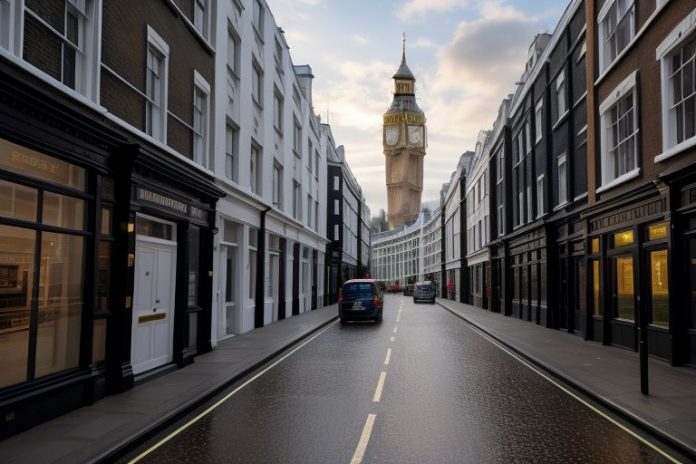London’s housing market is experiencing unprecedented pressure as rental prices hit new record highs, exacerbating the city’s ongoing affordability crisis. New statistics by property specialists reveal that the typical monthly rent in the capital is now £2,500, which is up 12% on the preceding year and the most elevated that they have ever been.
Some of the key factors that have contributed to this dramatic increase in rent prices include scarcity of rental properties in the market, high demand for houses by young employees who have moved back to work in the city after the COVID-19 pandemic, and their landlords raising the rent in light of increased mortgage costs. This increase is especially and currently increasing tremendous pressure on London dwellers, where many people have to spend more than half of their earnings on rent.
Unfortunate, Sarah Thompson, a housing master at London School of Economics, view that the situation is escalating to the critical stage. “We’re seeing a widening gap between wages and rental costs, which is pushing many long-term residents out of the city,” she explains. “This not only affects individuals and families but also threatens London’s diversity and economic vitality.”
It is worst in Islington, Hackney and Camden, rental increases have actually gone further than the others in that city. In these boroughs you find individuals waiting in queues to be given a view of the properties on the market to rent, and people offering to pay more than the listed price to the landlords.
Analysts noted that local authorities are uneasy about the situation, and the mayor of London, Sadiq Khan, has urged the authorities to take urgent measures to stabilize the rents. “We need urgent action from the government to implement rent controls and boost affordable housing supply,” Khan stated at a recent press conference. “London’s status as a global city is at risk if we can’t house our workforce affordably.”
The effects of increased rents pervade the economy of London city. Companies reveal that staffing remains a problem, given that employees look for jobs in other cheaper towns. Other creative quarters and the arts as part of London’s local culture, are also suffering the squeeze and young actors and artists cannot find reasonably priced accommodation.
As a result of the crisis, new organisations such as grassroots organisations, and tenant unions are emerging. Membership of the London Renters Union has more than doubled within the last six months due to increased basically seeking the support and assistance in dealing with landlords as well as prize keeping an eye on the competitive rental market within the region.
A number of new approaches are starting to be developed in the private enterprise arena. Joint housing spaces provide amenities and cheaper rates and have recently become popular among young people. On the other hand, some employers are considering providing housing subsidies as one of the symbols of employment in an attempt to address the problem in the capital.
Although some of the effects, which include deferral measures, are seen as being effective by the firm’s management, critics would agree that they are only short-term remedies to the problem. The housing strategy of London has been deficient in many ways, according to urban planning specialists: there is a need for increased funding of social housing, limitations to the renting out of properties by short-term rental platforms, as well as a push for the construction of affordable homes for the growing city population.
As the situation continues to evolve, there’s growing concern about the long-term implications for London’s social fabric and economic competitiveness. For now, there is no hope in London that such high degrees of housing stress might decreased so many questions remain as to how much longer the city can take it.
This feeds straight into the high rental rates row underscoring the problem facing other world cities in attempting to spread their wings and maintain livability. So while policymakers, businesses and its residents are trying to get to grips with these matters the next few months will be a decisive period as to whether London will remain a ‘liveable’ city and a ‘vibrant’ city.

